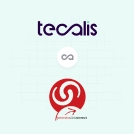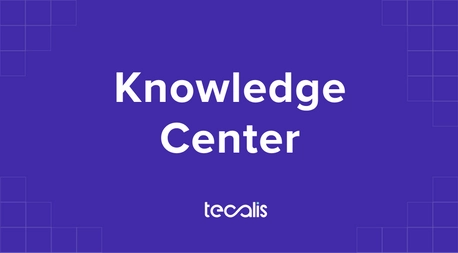Index
Get the latest news right in your inbox
Fight against fraud and money laundering has intensified. Companies are faced with increasing volumes of information and operations both digitally and in face-to-face locations, which has increased the complexity of complying with regulations and protecting against fraudulent activity. Fortunately, technology, especially artificial intelligence (AI), is revolutionizing the way organizations address these challenges.
Evolution of fraud and its tech solutions
Fraud has experienced exponential growth in recent years. This phenomenon has forced companies to adopt more sophisticated measures to prevent it - in addition to the emergence of new regulations that make it mandatory to adopt them. Advanced technologies such as artificial intelligence, facial recognition and process automation are essential to combat identity theft, detect deepfakes and ensure that customers and companies are who they say they are. .
According to a PwC report, 77% of global companies have experienced some form of fraud or economic crime in the last 24 months. The average cost of these incidents is $42 million per affected company. This highlights the urgent need to integrate advanced prevention tools
Digital Onboarding: frictionless and secure processes
One of the most critical processes in fraud management is digital onboarding, both for individual customers (KYC, Know Your Customer) and companies (KYB, Know Your Business). This process involves verifying the customer's identity, validating the documentation provided and implementing anti-money laundering (AML) controls.
Thanks to AI and the most innovative RegTech solutions provided by players such as Tecalis and Agile Control Solutions, onboarding can be done in minutes, without friction and with a high level of security. This is possible through the integration of advanced systems such as OCR (Optical Character Recognition) for reading documents and the use of passive liveness testing to ensure that the person in front of the camera is real and not a deepfake.
- The implementation of AI in onboarding processes has reduced customer registration times from 10-15 minutes to only 3-4 minutes in many companies.
- The use of advanced OCR systems makes it possible to verify and validate documents in seconds, drastically reducing human error and review times.
Automation in Fraud Detection: AI implementations
AI-driven automation is key in detecting behavioral fraud during the onboarding process. This technology not only analyzes the documents submitted, but also examines the user's behavior during registration, detecting anomalous patterns that could indicate fraud attempts.
In addition, companies are implementing Perpetual KYC (Continuous KYC) solutions, which allow constant monitoring of customers with recurring anti-fraud and anti-money laundering controls. This is especially useful for detecting changes in a company's status, such as a change of headquarters or entry on watch lists such as PEP (Politically Exposed Persons) or sanctions lists.


Anti-Fraud Regulations and Standards
The regulatory landscape is becoming increasingly stringent in terms of fraud and money laundering prevention. Globally, regulations such as the AML6 in Europe have been adopted, forcing companies to implement stricter controls and comply with international standards to combat money laundering.
In Latin America and other regions, although regulations vary, the trend is clear: similar legal frameworks are being implemented to strengthen the supervision of companies and their compliance processes.
Artificial Intelligence and RPA automation in compliance
In the compliance arena, AI has proven to be a powerful tool for streamlining processes and ensuring that companies comply with local and international regulations. Machine learning algorithms can analyze large volumes of data in real time, detect suspicious transactions and generate automatic alerts when unusual behavior is detected.
In addition, AI systems can connect to government and global databases to verify the identity of customers and companies in a matter of seconds. This includes querying PEP lists, international sanctions lists and trade registers, ensuring that organizations are not operating with high-risk individuals or entities.
- AI has reduced the time companies spend on manual compliance tasks by 50%.
- Automated systems can detect fraud patterns in large volumes of data with 95% accuracy.

A secure financial ecosystem
The impact of automation on risk management and compliance goes beyond fraud prevention. BFSI companies that have adopted RegTech (regulatory technology) solutions have seen significant improvements in terms of operational efficiency, cost reduction and customer satisfaction.
Automation has also enabled companies to expand into global markets without the need for large compliance teams in each country. This is possible thanks to the integration of APIs that connect risk and fraud management systems with local and global regulators, ensuring compliance anywhere in the world.
The future of compliance: AI and proactive prevention
The future of compliance is inextricably linked to artificial intelligence. As technologies advance, AI solutions will be able to anticipate and prevent fraud before it occurs. This includes the ability to predict high-risk behavior patterns and generate proactive alerts so that companies can take preventative measures.
The use of AI will not only improve security and fraud prevention, but also optimize the customer experience, making processes faster, more efficient and secure.

Digital transformation in compliance and fraud prevention is unstoppable. Companies that fail to adopt advanced technologies, such as AI and automation, risk falling behind and exposing themselves to increased risk of fraud and regulatory sanctions. Artificial intelligence has become an indispensable ally for fraud detection, risk management and regulatory compliance. Today's solutions are already reducing costs, optimizing processes and improving security for companies globally.
In short, the combination of AI, automation and RegTech solutions for money laundering is not only changing the way companies prevent fraud, but also how they manage their relationship with customers and regulators, ensuring a safer and more efficient future for all players in the financial ecosystem.
































